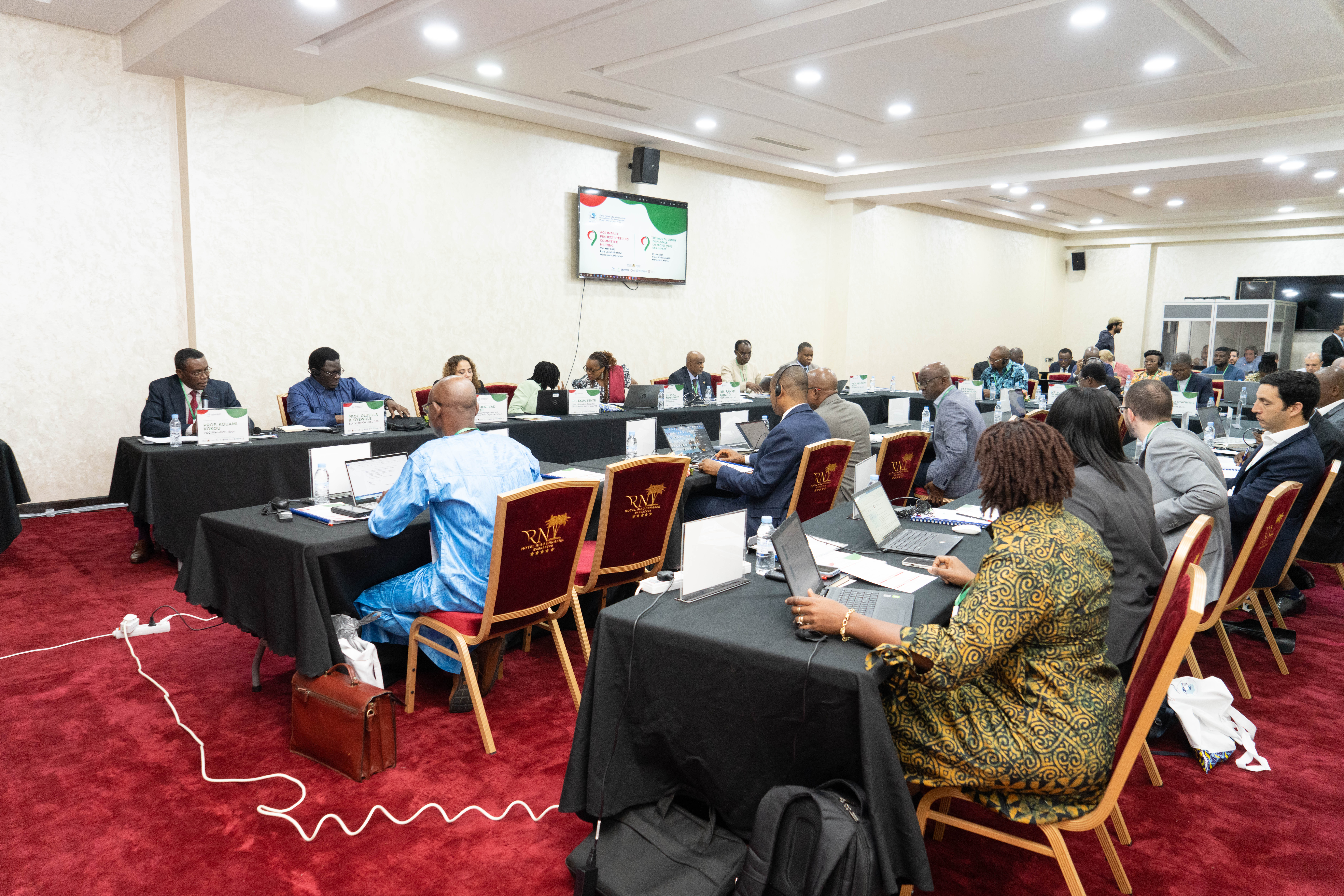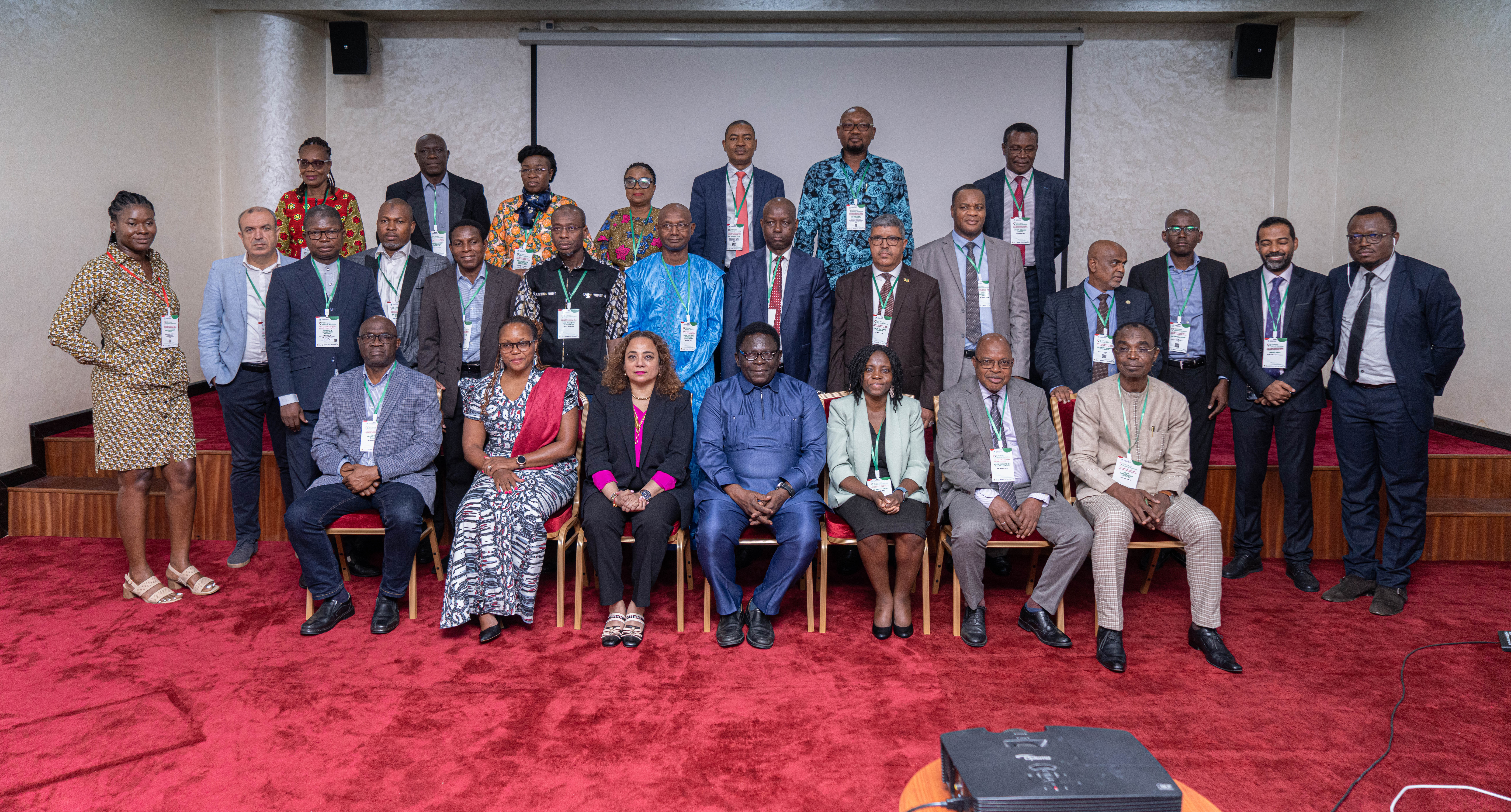Project Steering Committee Convenes in Marrakech to review ACE Impact Progress
As a prelude to the 9th ACE Impact Regional Workshop that was held in Marrakech Morocco from 29 May to 2nd June 2023, the Project Steering Committee (PSC) met to receive updates on the implementation of the project and to also provide guidance on implementation strategies. The ACE Impact project operates under the overall guidance and oversight of the PSC whose main tasks are to set implementation guidelines, review results and progress, oversee the Regional Facilitating Unit (the Association of African Universities) and to ensure the achievement of the project objectives.
Eleven (11) representatives of government/ministry of Higher Education from each of the ACE Impact participating countries converged at Riad Ennakhil Hotel in Marrakech to review and guide the overall progress of the project. The meeting was ably chaired by Professor Kokou, the PSC Member from Togo.
In his welcome remarks the Secretary General of the AAU, Professor Olusola Oyewole expressed his appreciation to the PSC members and Focal Points for their “enthusiasm and commitment to ensuring that centers are working up to expectations and at par with the project goals and targets”. He also paid special tribute to the Kingdom of Morocco through the Ministry of Higher Education, Research and Innovation, the Mohammed VI Polytechnic University, and OCP Africa for their support and partnership in hosting the 9th ACE Impact Regional Workshop.
Progress Updates from the AAU
Dr Sylvia Mkandawire, the Senior ACE Impact Project Manager presented the progress report on behalf of the AAU which is the Regional Facilitation Unit (RFU) for the project. Her updates covered the period November 2022 to May 2023 and highlighted progress on the coordination and facilitation of regional activities, monitoring and evaluation, capacity building, project communication, partnership brokering for sustainability and sharing of good practices across the countries.
The National Facilitation Units of Nigeria, the Gambia, Burkina Faso and Ghana were reported to have actively supported the implementation of several ACE Impact project activities such as evaluation exercises, implementation support missions and national review committee meetings. Dr Mkandawire also reported that the Project had achieved impressive results in the areas of external revenue generation (US$77 million), PhD enrollment (3,357 students), Masters enrolment (9,631 students), national program accreditation (283 programs nationally accredited), regional students enrolment (10,489 students), and female students enrolment (11,357 students).
It was reported that the AAU RFU had supported Centers with low disbursement linked indicator achievements, disbursements, and funds utilization rates through targeted technical support to improve their performance and increase earnings by June 2023. During this reporting period the AAU and World Bank teams together with appointed subject-matter experts had also undertaken virtual and onsite missions to 22 centers in Cote d’Ivoire, Djibouti, The Gambia, Ghana, Guinea, Niger, Nigeria, and Togo to follow-up on mid-term project actions and acceleration plans and to discuss the finalization of restructuring proposals. Dr Mkandawire narrated various seminars and trainings that had been hosted for the Centers on communication, celebrating women’s day, procurement, international institutional accreditation, and fighting sexual harassment.
In the area of project communication and visibility she shared that the RFU team was exploring partnership agreements with Science and Development (SciDev), Times Higher Education and the Voice of America (VoA), to profile the project’s success stories to an international audience. The ACE Impact Project was also reported to have brokered several project-wide partnerships to sustain the gains made so far. Examples of these partnerships include the Morocco-ACE Higher Education Forum hosted from 31 May to 2nd June 2023; the ongoing and upcoming partnerships with USA Universities; the IBM ACE Impact Partnership and the European Union Partnerships with selected Centers.
Dr Mkandawire concluded by sharing some challenges and opportunities presented by the ACE Impact project and these included inadequate capacities for developing safeguard instruments and plans before the rehabilitation, construction, or renovation activities; inefficient procurement systems; high inflation rates leading to delays and amendments to annual work plans, budgets, and procurement plans; inadequate strategies to support the sustainability of the Centers and insufficient numbers of qualified faculty at some Centers.
ACE IMPACT Project Restructuring
Overall, the ACE Impact project restructuring aims to optimize project performance, adapt to changing circumstances, and ensure successful project delivery within the available resources and constraints.

Mr Harry Crimi, the Education Consultant, with the World Bank reported on the activities that had been undertaken towards restructuring the ACE Impact Project ahead of the project closure on the 30th June 2025. The justification of the project extension and restructuring is based on several factors that include country specific delays, COVID-19 disruptions, costs already incurred that cannot be recovered, risks of not completing civil works, increasing demand for partnerships, and increased impact of the project on students receiving support.
The restructuring exercise involved the participating countries and their Centers. The roadmap towards the development of the restructuring plans for each of the Centers included the assessment of Centers, consultation with PSC, World Bank and AAU teams, and agreement on finalized parameters of restructuring. The restructuring was achieved through in-person and virtual support by the World Bank / AAU / AFD / PSC, leading to the reallocation of existing funds, and allocation of additional funds.
By the 30th June 2023 the World Bank team expects to have received restructuring/extension requests from participating governments, formally submitted restructuring packages to the World Bank management, sought formal clearance from the World Bank management and submitted notices to borrowing countries.
